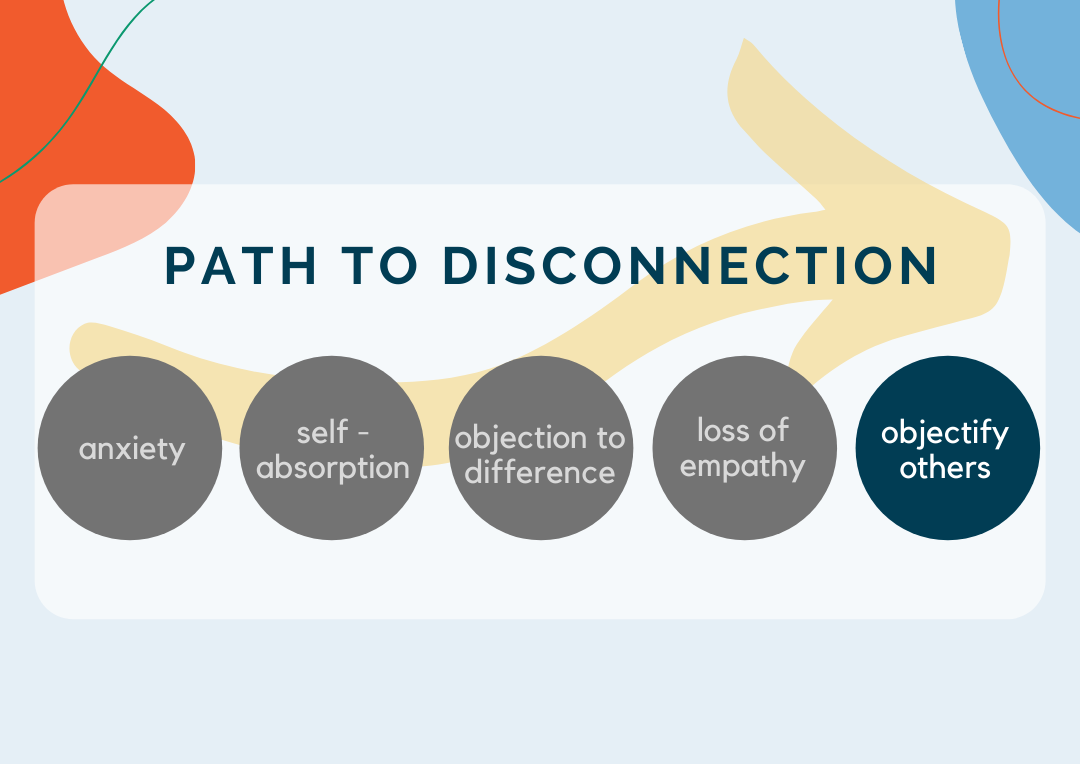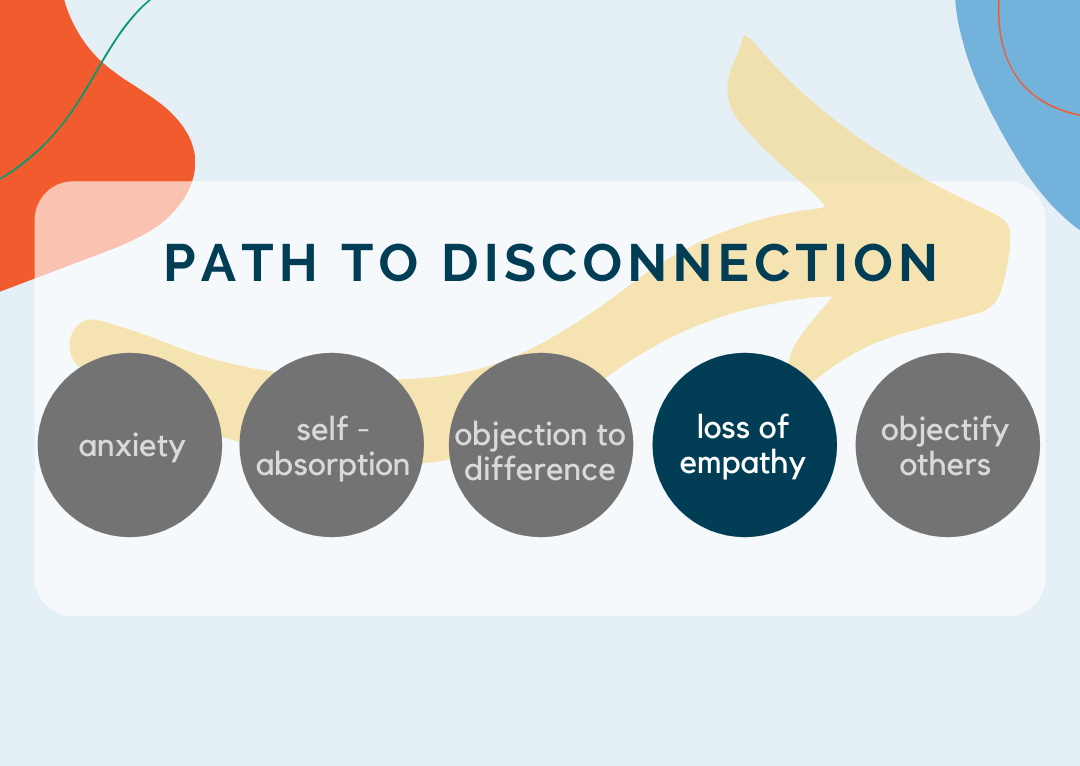In the last five messages, we’ve explored the not-so-good news about the Path to Disconnection.
In this final installment, we’ll review the stages of the Path, then share a simple, but not always easy, way to change our trajectory from the Path to Disconnection to the Road To Re-Connection.
As we’ve said, it’s important to remember that we ALL travel this path repeatedly throughout our lifetime. No one escapes childhood unscathed! But we can do something about the patterns we’ve developed as a result of this process, and that’s where Safe Conversations comes in.
We all experience the pain of disconnection almost immediately after arriving on the planet. It’s nobody’s fault – simply the nature of being human. Upon sensing that we are disconnected from our caregivers, even if only for a moment, our brains, in their infant state, are overwhelmed with fear of death, or worse, of ceasing to BE at all. Gripped with that fear, anxiety kicks in and we begin frantically trying to reestablish our life-giving connection.
With what seems like our very existence at stake, we get so focused on our goal of reconnection that we become self-absorbed, seeing and feeling only our own pain.
In that myopic state, our interactions with others take on an unhealthy tone of fearfulness. The differences they bring with them as individuals seem threatening to us, and we subconsciously object to those differences, leading to conflict between us.
As we grow less tolerant of others’ differences, we lose our ability to empathize with them, essentially making connection impossible.
Finally, when we lose empathy – that capacity to feel the emotional state of others, to feel their feelings as a differentiated individual – we start regarding them (subconsciously) as not much more than a means by which to get our needs met. We objectify them in that way, which then makes it all too easy to dehumanize them and treat them in any number of awful ways.
Having arrived at this final step, this pattern repeats itself with every instance of perceived disconnection, and soon we’re in the habit of treating others in ways that are not healthy or pleasant, frequently leading to conflicts that never seem to get resolved.
While it all sounds pretty dismal, there is hope! The good news is that Drs. Harville Hendrix and Helen La Kelly Hunt have distilled over 40 years of successful clinical practice into an elegantly simple, beautifully effective method of connection called Safe Conversations. This dynamic, three-step process uses cutting-edge neuroscience and time-tested clinical principles to teach us how to talk without criticism, listen without judgment, and truly connect beyond our differences.
Although the Path to Disconnection has a strong head start by the time we understand what’s been happening, Safe Conversations makes up for lost time by literally rewiring our brain in favor of empathy! It’s true – as we learn to become more competent at relationships with others and less focused only on the self, we actually change the physical structure of our brain. How cool is that?!
By diligently practicing the Safe Conversations process of Mirroring, Validating, and Empathizing, we learn to have conversations that no longer trigger the sense of disconnection in others. We learn to be curious rather than judgmental and to deepen our understanding of others’ differences rather than struggle against them. In doing all this with others, we are also giving ourselves these gifts, because the brain operates in such a way that whatever we do or say to others, we feel it ourselves to some degree.
So take heart! None of us is destined to live a life of revolving conflict and endless disconnectedness. Give Safe Conversations a try – in your personal and professional life – and finally experience the joy of reconnecting.
Recommended Reading



